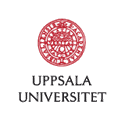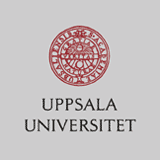Kursinformation finns inte tillgänglig på svenska, visar engelsk kursinformation.
Patient and public involvement in research
| Kursnummer | 12 |
| År | 2021 |
| Typ | Methodcourse |
| Spår | Reproduction and development, |
| Max antal deltagare | 20 |
| Sista ansökningsdag | 2021-11-02 |
| Språk | En |
| Kursansvarig | Joanne Woodford |
| Institution | Department of Women's and Children's Health |
| Besöksadress | MTC-house: Dag Hammarskjölds väg 14B, floor 1 |
| Postadress | Akademiska sjukhuset, 751 85 Uppsala |
| Datum | Seminars Tuesdays 11/02; 11/09; 11/16; 23/11; 30/11; 12/14 (13:15-17:00) |
| Lokal | Uppsala University, Detailed schedule will be announced later |
| Kurslängd | 7,5 ECTS. 8 weeks |
| Kursrapport | |
| Kursplan |
Beskrivning
Patient and public involvement (PPI) is defined as research being carried out with or by members of the public rather than to, about or for them. Well implemented PPI can facilitate the conduct of relevant and accessible research, resulting in innovative and impactful solutions to healthcare challenges.
The overall goal of the course is to build a basic understanding of PPI in health research. Further, the course will provide students with a simple toolkit to facilitate the application of the knowledge developed from the course in their own research.
Inlärningsmål
After completing the course, the students should be able to:
• Explain what PPI is, what it is not, and it’s empirical basis
• Define and differentiate between different levels of PPI
• Apply existing frameworks and guidance’s for conducting PPI and develop an understanding of ethical considerations
• Practically apply PPI throughout the research cycle
• Identify and apply appropriate tools to facilitate PPI
• Identify barriers and facilitators for PPI and reflect on how they may overcome barriers and utilise facilitators
• Critically evaluate the impact of using PPI in their research
• Identify and apply approaches to evaluate the impact of PPI in their own research
Innehåll
The course will adopt a “flipped classroom” approach. As such, more instructional and academic content will be delivered via online lectures and reading material – this will be done outside the classroom. A series of seminars will be used for activity based learning, for example, class discussions, debates, peer reviewing, and skill development. The aim with this approach is that more interactional seminars will help to facilitate students’ ability to apply the knowledge gained during the course into their own research.
Examination
Active participation at all occasions as per below is required. Students are expected to prepare well before seminars and read three core articles before each seminar. Attendance is mandatory.
Students will be required to present a poster in pairs at the beginning of seminar 4. The topic will be PPI through the research life cycle.
Final examination includes an individual written assignment where the students write a grant proposal utilizing PPI during the whole life cycle, in relation to their own research. This paper is due one week before the final seminar.
Before the final seminar, the students read each other’s papers. During the final seminar, each student will present their own paper and act as a discussant concerning another paper at the seminar. After the seminar, the students will get an opportunity to edit their own papers prior to grading, according to the discussions at the seminar.
Litteratur
The literature consists of articles and handouts.
Lärare
PhD, Researcher Joanne Woodford, Uppsala University
Kontakt
Joanne Woodford, course leader, joanne.woodford@kbh.uu.se


